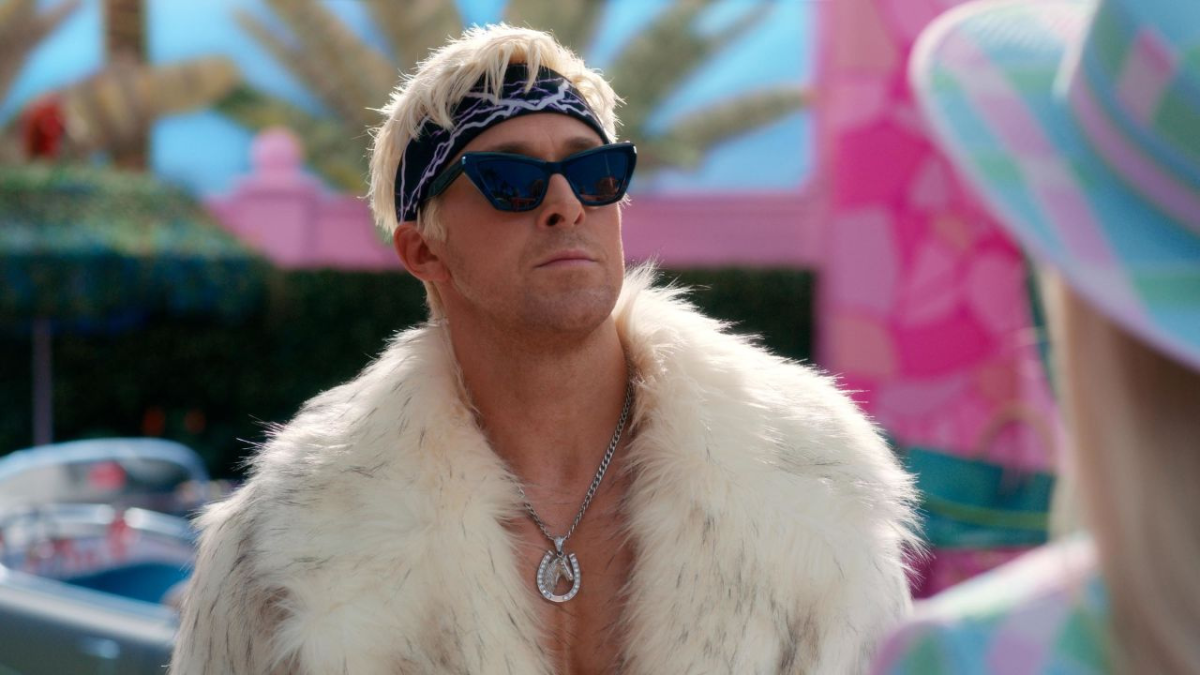
Everyone and their incel younger brother has watched Barbie, and it shows — while the film has been inundated with overwhelmingly positive responses from women and young girls who felt seen by its deeply empathetic depiction of girlhood, it’s also been review-bombed by men who felt it was “man hating”. Here’s why they couldn’t be more wrong.
There’s been a lot of reactionary BS to come out of the release of Barbie, but what baffles me the most is the claim that the film doesn’t care for its male characters.
A flurry of negative reviews both by critics for news publications and random losers on Letterboxd have labelled the film as misandrist, “man hating” and “an assault on men”, but that couldn’t be farther from the truth — and it takes just one look at Ken’s arc (and Barbie’s reaction to it) to see that.
To give you a quick recap, Barbie (Margot Robbie) lives a perfect life in plastic Barbieland when she starts having thoughts of death. So, she sets out into the real world to treat the cause of her condition, and Ken (Ryan Gosling) joins her.
While in the “real world”, Barbie discovers what it is to be a human, and specifically a woman — she’s leered at, bullied, and arrested, but she also experiences awe, empathy and emotions for the first time.
For Barbie, the real world is a scary place. For Ken, on the other hand, it’s heaven — or at least, it looks to be. It’s his first experience of a world where Kens men are the dominant power holders, rather than sweet himbos. While Barbie meets with women and discovers the wonders of crying (and the terrors of sexual harassment), Ken meets men and discovers the patriarchy — an idea he imports back to Barbieland, which he and the other Kens overthrow, take over and rename “Kendom”.
Barbie returns from the Real World to find Ken — who she thought was her friend — has now taken over her home (like, literally moves into it and replaces her decor and furniture), brainwashed and objectified her friends, and has become a grade-A dick. He treats her as his inferior, yet still expects her to become his girlfriend and return his unrequited love for her. Spurred by his own feelings of inadequacy, he becomes a full-blown Kencel.
It’s at this point that you think Ken has become the villain from the film — and director Greta Gerwig could have taken it there — but instead the film is far more generous to its male lead.
After the various Barbies reclaim their home and oust Ken as its leader, he isn’t punished or jailed, and neither are the other Kens.
Instead, while Ken is crying over the whole ordeal, Barbie comforts him. Despite being victimised by Ken, she treats him with empathy, and even feels bad for him — even though, as her friends remind her, he literally ruined her life and betrayed their friendship. He then tries to kiss her again, right after she makes it clear they are just friends, and perhaps worse: he never actually apologises to her.
But despite that, Ken is never really blamed for the toxic person he becomes — he is depicted as misguided, just lashing out because he is wounded. He doesn’t have a place for himself in the world, the woman he loves doesn’t love him back, and he doesn’t know who he is without her. The film responds to his pain and misbehaviour with compassion and gives him a self-discovery arc.
Barbie approaches Ken with a gentle empathy that wounded boys like him often need, though maybe don’t deserve, as he cries for the first time — and it’s this that makes me shocked when people call the film man-hating.
Just as Barbie’s arcs represents the beauty and trauma that comes with transitioning from girlhood into womanhood, Ken’s arc represents young boys who start off as sweet, respectful kids but inevitably discover “patriarchy” and the hierarchical power they can access if they lean into misogyny. A fear Greta Gerwig is probably familiar with, given she is a mother to two boys.
The key takeaway, though, is that Ken’s newfound power under “patriarchy” doesn’t make him feel better. It doesn’t solve his problems. It doesn’t get him the girl. It just means he’s still empty and miserable inside, but now he’s alone, too.
Barbie reminds us that men, too, are victims of patriarchy. The same gender roles that supposedly reinforce their superiority, also repress them; while they might get to “rule the world” or whatever, leaning into ideas of toxic masculinity causes them to miss out on meaningful emotional connections, strong friendships with other men and women, empathy, and a good fkn cry.
Patriarchy doesn’t only hurt women — it hurts the young boys who are told they can’t be who they want to be if it doesn’t conform to outdated ideas of masculinity, too. Who are men under patriarchy when you remove their binary with women?
To me, Barbie was far kinder to Ken than it needed to be, because the film and its characters care about him — and other men who have been misguided and hurt by patriarchy, too.
So no, Barbie is not man-hating. In fact, you could argue it’s almost too generous to its male characters, who — just like shitty men IRL — never actually face consequences for their hurtful actions.



